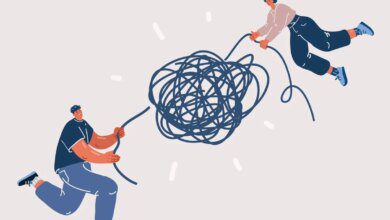
Therapist: A traditional family, built on a rigid model. How do you comment on Delia's statements?
Delia's recent statements about her decision to become a mother have divided her fans into two camps. Such a decision cannot be made for another person, nor is it a role that needs to be taken on due to the pressure of others, they emphasize Ildiko Opris, Marriage and family therapist and founder of a women's health clinic.
Just as we prepare for every stage of our lives, whether we are talking about school or career, we also plan mentally and emotionally for when we take the step towards family, marriage and children. The decision to become a parent is one of the most important, given that this role is for life, says Ildiko Oprish, family therapist.
What are we weighing when weighing this decision?
Is it important to be a mother? Absolutely required? If you don't take on this role, are you a selfish person? Is it really necessary to take on such an emotionally charged role even if you don't want to? Will you be inferior if you admit that parenting is not for you? Does having a child change your relationship for the better? Are you satisfied or rather confused by the newcomer in your life? All these questions must be answered in advance, because after the baby is born, there is no point in regretting. It is because these questions were not asked at the right time that there are women who then become depressed because they took on a role that they were not prepared for.
How does a woman understand that she is ready to become a mother?
It's simple: when all actions and energy are directed towards this thought. If the reason for procrastination is that the financial situation is not what we need, that we do not have our own home or a good enough job, I think it would be better to look within ourselves, because there is a good chance that we are looking for excuses. Sometimes it's a sign that we don't have the courage to admit that we don't really want to take on such an important and otherwise irreversible role. Often we cannot tell whether this desire is our own or whether it comes from external pressure from society.
Can we count on the activation of the maternal instinct?
This is a controversial topic of maternal instinct and many women wonder whether they have mastered it or not, and sometimes this is also the reason why they postpone the moment when they become mothers. I recommend that women, before taking on this role, consult with a specialist who can help them figure out whether they are ready to take this step. In 2-3 lessons they will clarify their thoughts and be able to answer all their questions themselves.
Whether it's family asking when she's having a baby or friends who already have a baby, how much does social pressure play into this decision?
For a woman who is not yet willing to take on this role, social pressure can affect her from a psycho-emotional point of view, since the traditional family was built according to a rigid model that must be followed: until 30 years of marriage, next year a baby! A modern woman who wants, above all, a career and recognition as an individual, can be accused of selfishness, because she does not want to sacrifice freedom in favor of raising a child. But a woman must be supported no matter what choice she makes.
In the case of a woman who decides to become a mother, even if she does not feel completely ready, is there a risk of feeling old-fashioned after giving birth?
Although the maternal instinct is assumed and talked about, it does not kick in immediately after the birth of a child and there is a possibility that it will not kick in naturally. Just like a couple's relationship, the relationship with the child is also built. That's why I encourage mothers to seek support and help from family when they feel overwhelmed, and if the sadness persists for more than six weeks, to seek professional help. The need for support during this period is necessary for the psycho-emotional balance of the mother, since she passes this balance to the baby. How a mother responds to his needs determines the child's future relationships in adulthood, and if she does not feel ready for this role, the child will learn insecure attachments that will affect him in every relationship in his life.
What is a healthy, empathetic approach to others when a woman is open about her choices, whatever they may be?
Every woman has the right to make her own choices in life, regardless of whether his priorities are family and children, career or travel. Instead of conclusions, I would like to talk about the case of a 35-year-old client who, after a successful career in finance, decided that she really wanted a child. After several unsuccessful attempts at fertilization and IVF, she sought psychological counseling to understand what was happening to her. So we found out together that she really really wanted to visit India, and a small child would prevent her from going that far. She was afraid that she would disappoint her husband, but together we decided that he needed to know, so we invited him to a discussion. Surprise: my husband didn’t consider himself ready to become a parent either. However, six months later she returned to the practice, pregnant and spiritually fulfilled after her adventure in India. So all I could say was, “Everything has its time!”













